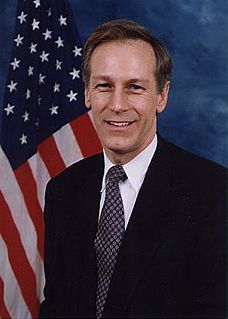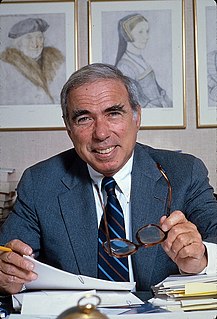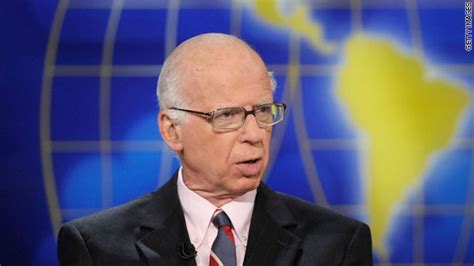A Quote by Judy Woodruff
The heyday perhaps of American public infrastructure is the Sputnik moment of the 1950s, the [Dwaight] Eisenhower administration, for instance, which rolls out the modern interstate system. The highway system of the United States is built during this period.
Related Quotes
Not since the multiplication of the loaves and fishes near the Sea of Galilee has there been creativity as miraculous as that of the Keystone XL pipeline. It has not yet been built but already is perhaps the most constructive infrastructure project since the Interstate Highway System. It has accomplished an astonishing trifecta
The Bush administration as well as Mexico and Canada have persons in the government in all three countries who want to a see a North American Union as well as a highway system that would bring goods into the west coast of Mexico and transport them up through Mexico into the United States and then in onto Canada.
Democracy, in the United States rhetoric refers to a system of governance in which elite elements based in the business community control the state by virtue of their dominance of the private society, while the population observes quietly. So understood, democracy is a system of elite decision and public ratification, as in the United States itself. Correspondingly, popular involvement in the formation of public policy is considered a serious threat. It is not a step towards democracy; rather it constitutes a 'crisis of democracy' that must be overcome.
An old joke has an Oxford professor meeting an American former graduate student and asking him what he's working on these days. 'My thesis is on the survival of the class system in the United States.' 'Oh really, that's interesting: one didn't think there was a class system in the United States.' 'Nobody does. That's how it survives.
The electronics industry expanded rapidly and the seeds for the semiconductor and software revolution were planted. The postwar period also saw the suburbanization of America, the rise of the homeowner, the build-out of the interstate highway system, and the rise of automobile culture. Credit availability expanded dramatically.
I think that we're at an alarming moment in American political development and maybe in world political development, because the United States is so influential. If the trends of the last thirty or forty years are not halted and reversed - and those trends include increasingly inequality, a crumbling public life, a disintegrating public infrastructure, an exhausted ecology, and a huge war arsenal, and more and more war making - then I'm rather gloomy about the prospects for the American future and the harm that the United States could do to the world.
































